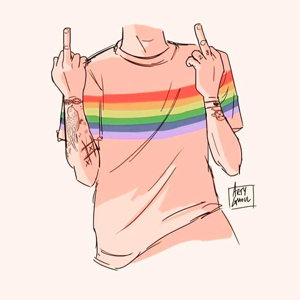The first time I smiled at Tabatha Brown, she didn’t smile back.
All hundred-and-twelve of us were sweating into our woollen skirts, our opaque tights and our dry-clean-only blazers, like overwatered plants in the great greenhouse of the school lunch hall. Little did I know that glass monstrosity was to be the setting of a seven-year-long epic, and this was the day when roles would be assigned. Tabatha Brown and her friends were already playing the part of the wanted, whilst I, along with the majority of my classmates, had yet to find my place among the remaining supporting roles, from Maths Whizz to Pot-Head to Gay Best Friend.
Taking my first steps on that linoleum floor, I had my first glimpse of a feeling that would persist throughout my school and university years: the feeling that all eyes are on you, ready to scrutinise everything you do, everything you say, from the brand of your shoes to your last exam result, and that one wrong move will be the death of you. But simultaneously, you feel this desperate need to make people give a shit about you, to become someone who’s worth all that scrutiny, because the only thing worse than being hated is being invisible. And, of course, through all of this, you know that you must act nonchalant, because if you give away the game, you lose it. That is adolescence.
One of the first people I spotted in that bustling room was Tabatha Brown, although I didn’t know that was her name yet. My eye was drawn to her because she, unlike most of us, already knew the unwritten dress code. Her skirt, for one, was about a third of the length of mine, and I assume it had been professionally altered. Mine, by comparison, was a heavy thing, and fell just over my knees. And Tabatha was already wearing make-up – real, grown-up, ‘natural-look’ make-up – whilst my own collection at home consisted entirely of freebies from magazines in dazzling, unwearable shades. Also, she was already standing in a group of people, laughing. Tabatha looked like someone worth talking to.
So, remembering what my mother had told me that morning when I’d cried in the car, too scared to walk through the school gates – that if you’re nice to people, they’ll be nice back, and that everyone is in the same boat – I decided to try and instigate a conversation with Tabatha. But the problem was, I couldn’t move. My legs were stuck, and all I could do was stand there by the door as other new students flooded in around me, making friends and marking territory. I couldn’t just go marching over there and talk to her. I’d have to catch her eye first, maybe smile? Then if she smiled back, that would give me permission to approach.

